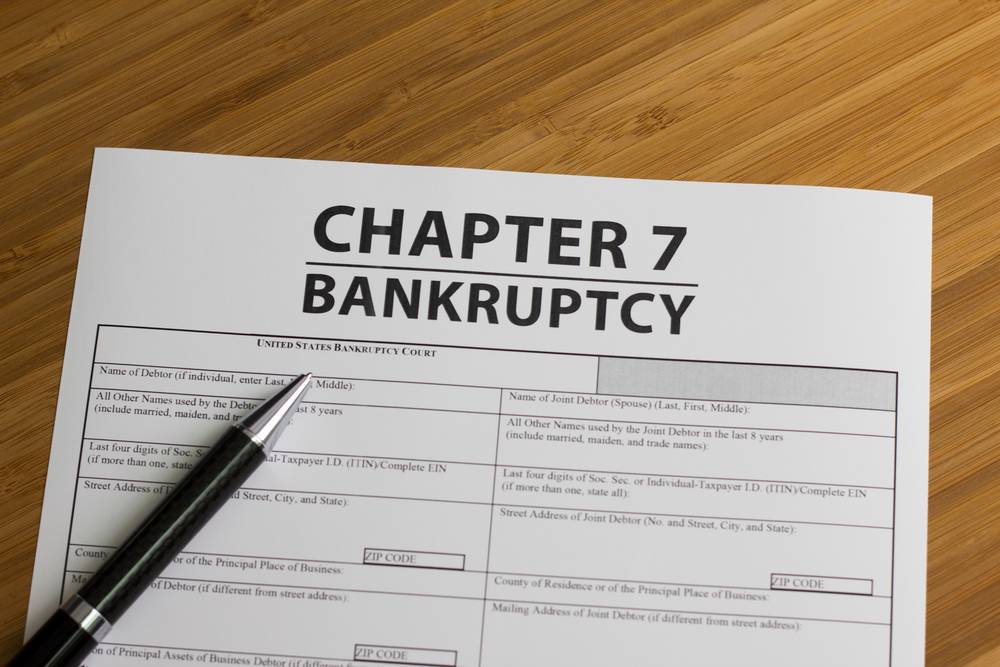Chapter 7 Bankruptcy
What exactly is a Chapter 7 bankruptcy in Oklahoma?

In Oklahoma, a Chapter 7 bankruptcy is a way for people to discharge certain debts. Chapter 7 is meant for people who don’t have the means to be able to pay their normal living expenses, house payment, car payments, food, and clothes, while being able to pay unsecured debts, credit cards, medical bills, personal loans, and possibly some taxes. It allows people to discharge their obligation from paying those debts. At the end of the bankruptcy, they start from scratch. That’s why it is called a fresh start bankruptcy.
What Is The Chapter 7 Discharge?
In a Chapter 7 bankruptcy, a discharge is a permanent injunction against your creditors stopping them from trying to collect on debts. They cannot file a lawsuit against you, garnish you, or call you. They can’t even write letters.
What Debts Are Discharged By A Chapter 7 Bankruptcy?
Debts that are discharged by a Chapter 7 bankruptcy include credit cards, personal loans, unsecured loans, medical bills, mortgages, and car loans. Some taxes can get discharged, but most taxes, newer taxes are not. Child support is not released by a Chapter 7. Student loans, court fines, criminal fines, and personal injury caused by a DUI, are also not dischargeable through a Chapter 7 bankruptcy.
Will I Lose All Of My Property In A Chapter 7 Bankruptcy?
You will not lose all of your property in a Chapter 7 bankruptcy. The law allows people to keep some of their property. There is the potential to lose some property, but it depends on the state exemption laws and the federal exemption laws that you qualify for. Under Oklahoma law, you are allowed to keep almost everything that you own. You can keep your car as long as it has an equity of up to $7,500. You can keep all of your clothes, home furnishings, kitchen appliances, equity in your home, 401(k)s, and pensions. All of the above are exempt, and they cannot be taken away from you. Some people, however, may lose their tax refund, and extra vehicles such as boats, motorcycles, and jet skis.
May I Keep Any Of My Property In A Chapter 7 Without Paying Off A Creditor In Full First?
You cannot keep property in a Chapter 7 if a lien is in place for that property. In other words, a Chapter 7 is not going to discharge a lien. If you want to keep your car, but you have a lien on it, you will have to pay the lien. The same rule applies to a house. You can’t keep the property without paying the lien off.
What Are Requirements To Be Eligible To File For A Chapter 7 Bankruptcy?
The eligibility to file for a Chapter 7 bankruptcy depends on income. The more income, the more means you have to pay off your creditors. If you have more means to pay off your creditors, you are more likely eligible for a Chapter 13 bankruptcy and not a Chapter 7. The less money you have to pay off your creditors, and the more expenses you have, the more likely you are eligible for a Chapter 7.
What Is The 341 Meeting Of Creditors? What Happens At The 341 Meeting?
A 341 meeting is an opportunity for your creditors to come to court and ask you questions. Most creditors don’t come to court anymore. The trustee is the one who asks most of the questions, and it’s sort of testimony under oath. Usually, you are in and out in about a couple of minutes. The 341 meeting is an opportunity for the trustee to clear up any discrepancies, and it allows you to correct any issues. If there is a problem or change that you need to make in your bankruptcy, if you tell the trustee about it at that point, then they usually treat it like it never happened, as if you never made the mistake.
For more information on Chapter 7 Bankruptcy In Oklahoma, a free initial consultation is your next best step. Get the information and legal answers you are seeking by calling (405) 213-1919 today.
Contact Us Today Risk Free!
(405) 213-1919

